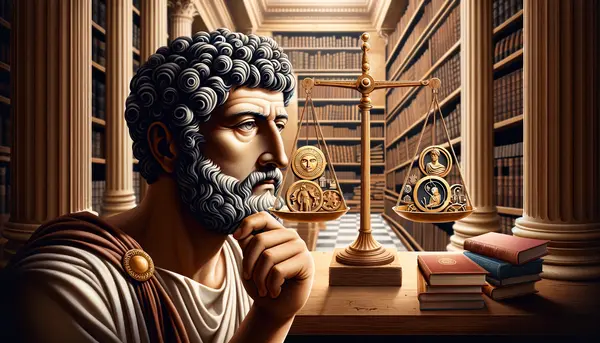Who is Epictetus?
Biography Epictetus, born around 55 AD in Hierapolis, Phrygia (now part of modern-day Turkey), was initially born into slavery. He lived in Rome where he was a slave to Epaphroditos, a wealthy freedman and secretary to Nero. Epictetus was eventually freed and went on to teach philosophy in Rome until approximately 93 AD, when Emperor Domitian banished philosophers from the city. He then relocated to Nicopolis in…




